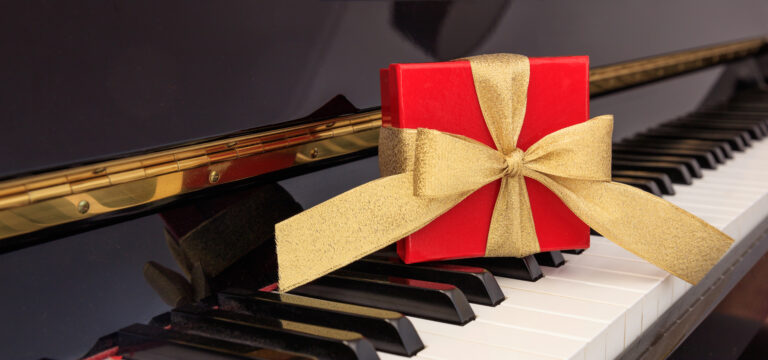Key to Cleanliness: Safely and Effectively Using Vinegar to Clean Your Piano Keys
In the world of piano ownership, the quest for pristine keys and harmonious melodies unfolds like a timeless sonata. The delicate balance of cleanliness and maintenance becomes a symphony of care and dedication, where the allure of natural alternatives beckons with the promise of restoration and renewal.
The piano, a cherished companion in the realm of musical expression, bears witness to the accumulation of dirt, oil, and debris that can cloak its keys with a veil of neglect. Amidst the myriad of commercial cleaning products, the whispers of vinegar emerge as a beacon of possibility, offering a natural and cost-effective solution to restore the lustre of the piano keys.
As we embark on this journey of preservation and renewal, the promise of using vinegar to clean piano keys unfolds as a delicate dance of caution and care. The natural cleaning prowess of vinegar holds the potential to lift the veil of grime from the keys, restoring their radiance without harming the delicate ivory or plastic surfaces. Yet, within this promise lies the need for understanding and precaution, a journey that demands knowledge of the piano keys’ composition and the proper techniques for their care.
So, dear seeker of musical harmony and restoration, let us delve into the heart of this enigma, as we unravel the art of cleaning piano keys with vinegar. Within these pages, the melody of care and dedication awaits, inviting you to discover the timeless art of piano maintenance and the promise of transformation that resonates within its hallowed embrace.
Understanding Vinegar as a Cleaning Agent
When it comes to cleaning piano keys, you may have heard that vinegar is a great natural cleaning agent. Vinegar is a versatile substance that has been used for cleaning and disinfecting for centuries. However, it’s important to understand the properties of vinegar before using it to clean your piano keys.
Vinegar is an acidic substance, which means it has a pH level of less than 7. This acidity makes it effective at breaking down dirt and grime on surfaces. However, it’s important to note that vinegar should never be used on marble, granite, or other natural stone surfaces, as the acid can etch and damage these materials.
When using vinegar to clean your piano keys, it’s important to dilute it with water. A mixture of one part vinegar to two parts water is a safe and effective cleaning solution. Simply dampen a soft cloth with the solution and gently clean the keys, being careful not to get any liquid in between the keys.
It’s also important to note that vinegar should never be used on ivory keys, as the acid can damage the delicate material. Instead, use a damp cloth with mild soap and water to clean ivory keys.
In summary, vinegar can be a useful cleaning agent for piano keys, but it should be used with caution and diluted with water. Always avoid using vinegar on natural stone surfaces and ivory keys. With proper use, vinegar can help keep your piano keys clean and looking their best.
Preparation Before Cleaning Piano Keys

Gathering Materials
Before you start cleaning your piano keys, you need to gather the necessary materials. The following items are needed for this task:
- A soft cloth or microfiber towel
- Distilled water
- White vinegar
- A small bowl
- A spray bottle
- A vacuum cleaner with a soft brush attachment
Make sure to use distilled water, as tap water can contain minerals that can damage your piano keys. Also, avoid using paper towels or any abrasive materials, as they can scratch the surface of the keys.
Safety Precautions
Cleaning your piano keys can be a delicate process, and it’s important to take some safety precautions to avoid damaging them. Here are some tips to keep in mind:
- Avoid using too much liquid on the keys, as it can seep into the key bed and cause damage.
- Don’t use abrasive materials or harsh chemicals, as they can scratch or discolour the keys.
- Be gentle when wiping the keys, and avoid pressing too hard.
- Always test a small area first to make sure the cleaning solution doesn’t damage the keys.
By following these simple steps, you can prepare yourself for cleaning your piano keys safely and effectively.
Step-by-Step Guide to Cleaning with Vinegar
Cleaning your piano keys with vinegar is an easy and effective way to remove dirt and grime. Follow these simple steps to get your piano keys looking clean and shiny again.
Mixing the Solution
To make the cleaning solution, mix equal parts of distilled water and white vinegar in a bowl. You can also add a few drops of mild dish soap to the mixture for extra cleaning power. Avoid using any harsh chemicals or abrasive cleaners, as they can damage the piano keys.
Application Process
Dip a soft cloth into the cleaning solution and wring out any excess liquid. Gently wipe each piano key from left to right, being careful not to get any liquid in between the keys. If you notice any stubborn stains or dirt, you can use a soft-bristled toothbrush to gently scrub the affected area. Be sure to rinse the toothbrush in the cleaning solution between uses.
Drying and Buffing
After cleaning each key, use a clean, dry cloth to wipe away any excess moisture. Then, buff the keys with a separate dry cloth to give them a shiny finish. Avoid using any paper products, such as paper towels or tissues, as they can scratch the piano keys.
By following these simple steps, you can safely and effectively clean your piano keys with vinegar. Remember to always be gentle and avoid using any harsh chemicals or abrasive cleaners. With a little bit of care and attention, your piano keys will look as good as new!
Potential Risks and Damages

When it comes to cleaning your piano keys, it’s important to be aware of the potential risks and damages that can occur if you use vinegar or other harsh cleaning agents. Here are a few things to keep in mind:
- Damage to the keys: Vinegar is acidic, which means it can potentially damage the surface of your piano keys over time. This can lead to discolouration, cracking, and other forms of damage that can affect the overall appearance and functionality of your instrument.
- Damage to the finish: If your piano has a lacquer or other type of finish, vinegar can also damage this surface if it’s not used properly. Over time, the acid in vinegar can eat away at the finish, leaving it dull and discoloured.
- Potential health hazards: In addition to the risks of damage to your piano, using vinegar to clean your keys can also pose potential health hazards. The strong smell can be irritating to your eyes, nose, and throat, and prolonged exposure can even lead to respiratory problems.
To avoid these risks, it’s best to stick to gentle cleaning agents that are specifically designed for use on pianos and other delicate instruments. If you’re unsure about what products to use, it’s always a good idea to consult with a professional piano technician who can offer guidance and advice based on your specific needs.
Alternative Cleaning Methods

If you don’t have vinegar on hand or prefer not to use it, there are other cleaning methods you can try to clean your piano keys. Here are a few options:
- Water and soap: Mix a small amount of mild soap with water and dip a soft cloth into the solution. Wring out the cloth so it’s damp but not soaking wet, and gently wipe the keys. Be sure to dry the keys thoroughly with a clean, dry cloth afterwards.
- Rubbing alcohol: Dampen a soft cloth with rubbing alcohol and gently wipe the keys. This method can be effective for removing stubborn stains or grime, but be sure to use a light touch and avoid getting the alcohol on any other parts of the piano.
- Microfiber cloth: A microfiber cloth can be a gentle and effective way to clean piano keys without any cleaning solution. Simply dampen the cloth with water and gently wipe the keys, being sure to dry them thoroughly afterwards.
Remember, when cleaning your piano keys, it’s important to use gentle, non-abrasive materials and avoid getting any moisture or cleaning solution on other parts of the piano. If you’re unsure about how to clean your piano keys or have any concerns about the condition of your instrument, it’s always best to consult a professional piano technician.
Frequently Asked Questions
What is the safest method to clean ivory piano keys?
It is recommended to avoid using water or any liquid on ivory keys as they can absorb moisture and cause damage. The safest way to clean ivory keys is by using a soft and dry cloth to wipe away any dirt or dust. You can also use a small amount of rubbing alcohol on the cloth to remove any stubborn stains, but be sure to avoid using too much alcohol as it can dry out the ivory and cause cracks.
How can I restore the whiteness of my piano keys?
To restore the whiteness of your piano keys, you can use a mixture of water and mild soap. Dampen a soft cloth with the solution and gently wipe the keys, being careful not to let any liquid seep into the gaps between the keys. After cleaning, dry the keys with a soft and dry cloth. It is important to note that excessive cleaning can damage the keys, so it is best to clean them only when necessary.
Is it safe to use hydrogen peroxide for cleaning piano keyboards?
Hydrogen peroxide should not be used on piano keyboards as it can cause discoloration and damage to the keys. It is best to avoid using any harsh chemicals or abrasive materials on the keys.
What are the best practices for cleaning sticky keys on a piano?
Sticky keys can be caused by a buildup of dirt or moisture. To clean sticky keys, first, identify the cause of the stickiness. If it is caused by dirt, use a soft cloth to wipe away any debris. If it is caused by moisture, wait for the keys to dry out before attempting to clean them. If the stickiness persists, it may be necessary to have a professional piano technician take a look.
How should one clean piano keys on a Yamaha instrument?
Cleaning piano keys on a Yamaha instrument can be done using the same methods as cleaning any other piano keys. It is important to avoid using excessive amounts of liquid and to be gentle when cleaning the keys. If you are unsure about how to clean your Yamaha piano keys, refer to the manufacturer’s instructions or consult a professional piano technician.
Can household items be used to maintain plastic piano keys?
Household items such as mild soap and water can be used to clean plastic piano keys. However, it is important to avoid using any harsh chemicals or abrasive materials as they can damage the keys. It is also recommended to avoid using excessive amounts of liquid and to dry the keys thoroughly after cleaning.






